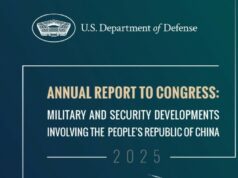OTTAWA: Canadian police charged three people on Friday with the murder of Sikh separatist leader Hardeep Singh Nijjar in the province of British Columbia in June 2023, Canadian media said, citing court documents.
CTV and Global News first reported the news of those arrested on Friday, with CTV saying all three were Indian nationals.
Assistant Commissioner David Teboul said the matter was still under investigation and other probes were being carried out. These “include investigating connections to the government of India,” he told a televised news conference.
Nijjar, 45, was shot dead outside a Sikh temple in Surrey, a Vancouver suburb with a large Sikh population. The news broke days after the White House expressed concern about the reported role of the Indian intelligence service in assassination plots in Canada and the United States.
The presence of Sikh separatist groups in Canada has long frustrated New Delhi. Nijjar was labeled a “terrorist” by India.
Prime Minister Justin Trudeau announced in September that Canadian authorities were pursuing allegations linking Indian government agents to the murder of Nijjar, a Canadian citizen. New Delhi rejected Trudeau’s claim as “absurd.” The Royal Canadian Mounted Police are due to brief media about the case at 3:30 p.m. EDT (1930 GMT).
Neither the RCMP nor the Indian mission in Ottawa were immediately available for comment.
Canada had been pressing India to cooperate in its investigation. Last November, U.S. authorities said an Indian government official had directed the plot in the attempted murder of Gurpatwant Singh Pannun, a Sikh separatist and dual citizen of the U.S. and Canada.
Canadian Public Safety Minister Dominic LeBlanc, in charge of Canadian law enforcement agencies, did not directly confirm the arrests but told reporters the probe into Nijjar’s murder was “still an active police operation”.
The Canadian Broadcasting Corporation earlier cited a source saying investigators had identified the suspects in Canada some months ago and had been keeping them under tight surveillance.
(REUTERS)
In a career spanning three decades and counting, Ramananda (Ram to his friends) has been the foreign editor of The Telegraph, Outlook Magazine and the New Indian Express. He helped set up rediff.com’s editorial operations in San Jose and New York, helmed sify.com, and was the founder editor of India.com.
His work has featured in national and international publications like the Al Jazeera Centre for Studies, Global Times and Ashahi Shimbun. But his one constant over all these years, he says, has been the attempt to understand rising India’s place in the world.
He can rustle up a mean salad, his oil-less pepper chicken is to die for, and all it takes is some beer and rhythm and blues to rock his soul.
Talk to him about foreign and strategic affairs, media, South Asia, China, and of course India.





